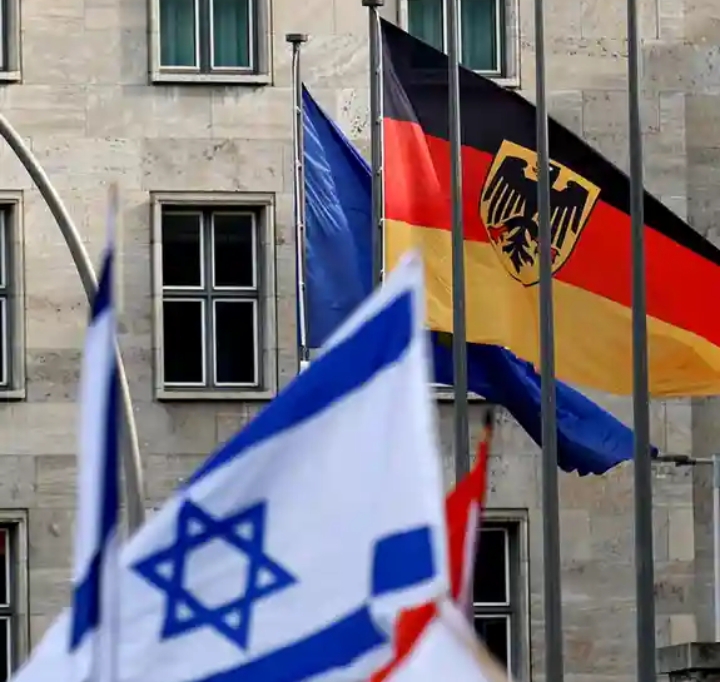Germany and Israel marked 60 years of diplomatic relations amid complex challenges. Israeli President Herzog visited Berlin to commemorate the anniversary, reflecting on the difficult historical context and rising antisemitism. German Chancellor Merz emphasized Germany's special responsibility toward Israel, though the relationship remains complicated by ongoing issues like the Gaza conflict and war crimes allegations.
Germany and Israel Mark 60 Years of Diplomatic Ties Amid Ongoing Challenges


Sixty years ago, on May 12, 1965, Germany and Israel established diplomatic relations after a long period of preparation. At the time, this was far from a matter of course: World War II had ended just two decades earlier, and the memory of Nazi Germany’s genocide of European Jews was still present in both countries. Even now, 80 years after the war’s end, relations with Israel remain extremely important, but also difficult.
Israeli President Isaac Herzog is coming to Berlin to mark the anniversary. Together with German President Frank-Walter Steinmeier, he plans to visit the “Platform 17” Holocaust memorial at Grunewald station in southwest Berlin, where approximately 10,000 Jews were deported to concentration camps during the Nazi era.
Herzog will meet with more than 100 German and Israeli youth, aware that antisemitism has surged, particularly among young people in Germany, since the start of the war in the Gaza Strip more than a year and a half ago. Herzog and Steinmeier will then travel to Israel together and visit a kibbutz on the border with Gaza.
The visit coincides with the first days of the new German government under Chancellor Friedrich Merz of the conservative Christian Democrats (CDU). Like all chancellors before him, Merz is aware of Germany’s special responsibility for Israel.
When former German Chancellor Angela Merkel (CDU) visited Israel in 2008 and spoke in the Knesset, the Israeli parliament, she used the term "reason of state" (Staatsräson) to describe this responsibility. In her view, Germany has a unique political obligation to ensure the existence and security of Israel.
The "reason of state" is a political maxim, not a legal one, but chancellors after Merkel (and most of those before her) have consistently acted in line with this principle.
Despite criticism of Israel’s actions in Gaza, German politicians have repeatedly emphasized that Israel has the right to defend itself after the October 7, 2023, terror attacks by the Palestinian militant group Hamas. The European Union, the United States, Germany, and several other countries classify Hamas as a terrorist organization. Nearly 1,200 people were killed in the attacks, and around 250 people were taken hostage.
In practice, however, fulfilling this maxim can be extremely difficult. Criticism of Israel's actions in Gaza is growing in Germany. Israel has been blocking aid deliveries to the Palestinian territory since March, resulting in hunger and death. The war in Gaza, which Israel initiated in retaliation for the 2023 Hamas attacks, has so far killed more than 52,600 people in the Hamas-run Palestinian territory, according to figures from its health authorities, which are considered reliable by international organizations.
In his first interview as chancellor, Merz told public broadcaster ARD: “Israel is of the utmost concern to us. The new foreign minister will be traveling to Israel next weekend on my behalf. I don’t want to anticipate. We are currently preparing this trip together. But it must be clear that the Israeli government must also fulfill its obligations under international law, under the international law of war.”
In November 2024, the International Criminal Court (ICC) in The Hague issued arrest warrants against Israeli Prime Minister Benjamin Netanyahu and former Defense Minister Yoav Gallant, among others, over alleged war crimes in Gaza. Germany, as one of the founding members of the ICC, would be required to arrest Netanyahu if he came to Germany.
However, the day after the German election in February, Merz said following a phone call with Netanyahu that, as chancellor, he would find ways and means “to ensure that Netanyahu can visit Germany and leave again without being arrested in Germany.” Merz has not repeated that statement since taking office.
Instead, the new chancellor said on ARD: “Israel has the right to defend itself against this brutal attack by Hamas terrorists on October 7 and everything that followed. But Israel must also remain a country that upholds its humanitarian obligations, especially in the Gaza Strip, where this confrontation with Hamas terrorists is necessarily taking place.”
The dispute over the arrest warrant for the Israeli prime minister highlights how complicated the relationship between the two countries still is today, particularly in light of the Gaza war. Although former Foreign Minister Annalena Baerbock of the environmentalist Greens frequently visited Israel after the war broke out, Netanyahu’s last visit to Berlin was more than two years ago, in March 2023, when he met with then-Chancellor Olaf Scholz of the center-left Social Democrats (SPD).
Germany also holds government “consultations” with Israel—meetings between the entire cabinets of both sides—underscoring the special importance of the relationship. Germany holds such meetings with just 12 countries worldwide. The last consultations with Israel took place more than seven years ago.

 বাংলা
বাংলা  Spanish
Spanish  Arabic
Arabic  French
French  Chinese
Chinese 
